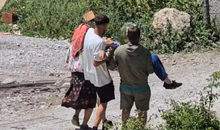
 Flash News
Flash News
The largest Israeli newspaper writes about the act of the Albanian martyr, Arben Anamali
From Venezuela to practice prostitution in Vlora, 3 girls under investigation
High-risk young man arrested in Fushë Kuqe (NAME)
Anti-drug action in Shkodra, who is the former police officer wanted by SPAK
SPAK action in Shkodra, 13 arrest warrants issued, including police officers
Christopher Hill: The U.S. will no longer intervene as it used to, Kosovo and Serbia will solve the problems themselves
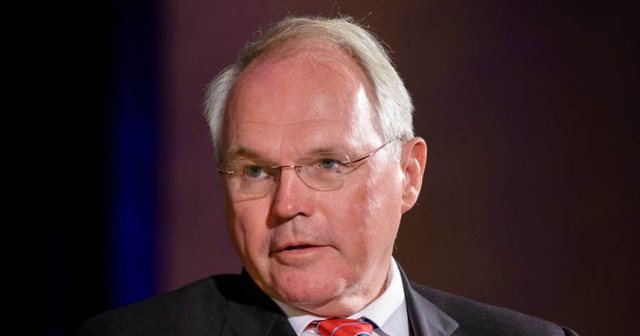
Former US ambassador to Serbia, Christopher Hill, does not expect the US to intervene in solving problems in the Balkans, including the dispute between Kosovo and Serbia, as it has done in the past. According to him, this region is not a daily priority for the US and solutions must come from within.
"The Balkans is, obviously, an unfinished business in Europe, but people in the Balkans need to understand that in other parts of the world, other things are happening. So they shouldn't expect people to put aside the problems they're dealing with, whether it's in Ukraine or in the Middle East, and say: Okay, Kosovo, we're going to try to help you with this," Hill says in an interview given to Radio Free Europe.
He emphasizes that Kosovo must advance the establishment of the Association of Serb Majority Municipalities, says that Serbia also has work to do, but underlines that it is helping Ukraine - the main priority in Europe, according to him.
"The fact that we are trying to manage some of our interests with Serbia does not mean that we are against Kosovo. We have many interests in Kosovo as well," says Hill.
The EU should be more committed
Radio Free Europe: Ambassador Hill, we are here at GLOBSEC 2025 in Prague, where the main topic is global security and transatlantic responsibility. How do you see the position of the Western Balkans in the broader European strategy and what role can Kosovo play in this context?
Christopher Hill: First of all , I think it's very clear that the European Union knows that there is some unfinished business, and that these unfinished business are in the Balkans. I think now, they [the EU] are evaluating how to define the new members. Should they accept them one by one, or at the same time? There are many challenges and, of course, the issues of approximation are also being considered.
I think that the European Union really needs to engage more and finish some unfinished business. I believe that we are seeing this now.
Radio Free Europe: Yesterday [June 12], here at GLOBSEC, you said that it is difficult to predict the policy of [US President Donald] Trump, but I will still ask: What kind of approach should Kosovo expect from its second administration?
Christopher Hill: I think there will be an effort by the U.S. to encourage the Balkan countries to start solving their own problems. I think the time when countries used to come to us or to any Western European country to complain about their neighbors [is over] and people are tired of that.
And the main issue, of course, is that other things are happening in the world as well. We don't live in the 1990s anymore. We are in a very different era.
Of course, we understand the issue of Israel, the big problem with Iran, which is huge, the issue of Gaza... and of course for Europe is the issue of Ukraine and what we are all doing for Ukraine...
So, I think the time when a Balkan country would come to us to complain about another Balkan country [is over], because people don't have time for these things anymore. They want to see models of cooperation within the region, and not a country that goes to some favorite member of the international community and says: Help us!
Kosovo and all Balkan countries should solve their own problems
Radio Free Europe: The United States, historically, has been one of Kosovo's main and strongest allies. Do you expect this to continue like this, or do you foresee any change in tone or priorities?
Christopher Hill: I think that, to some extent, it depends on what people in Kosovo want to do. I can say that these issues in the Balkans are very complex, but their complexity exceeds people's interest in understanding them.
Going to the U.S. and saying, "We have all these problems with our neighbors," people will respond, "Look, everybody has problems, solve them themselves."
I think the expectation is that – without necessarily having mediators every day, without always relying on non-governmental organizations or friends – people will try to solve problems with their immediate neighbors on their own, because the international community is simply focused on other issues.
I'm not saying that the Balkans aren't important. As I said, the Balkans is, obviously, a work in progress in Europe, but people in the Balkans need to understand that in other parts of the world, other things are happening. So they shouldn't expect people to put aside the problems they're dealing with, whether it's in Ukraine or the Middle East, and say, "Okay, Kosovo, we're going to try to help you with this."
Kosovo, like all Balkan countries, really needs to take responsibility and solve its own problems.
Symbolic gestures alone are not enough
Radio Free Europe: Recently, Kosovo's incumbent government agreed to temporarily house up to 50 migrants expelled from the United States, as part of an agreement to relocate to a third country. What does this action show about Kosovo's proximity to American interests?
Christopher Hill: I think that shows that Kosovo has an interest in getting closer to the U.S. and showing a willingness to help it in its challenges.
But, I want to emphasize that such symbolic gestures are very important and useful. However, they must be accompanied by a broader approach, which ensures that Kosovo is not on the list of problems.
Radio Free Europe: Do you think of anything concrete?
Christopher Hill: I don't have anything concrete in mind, other than the fact that it's already been over 25 years since 1999 and I have to say that I find it very disappointing that so little has been achieved during these 25 years.
The U.S. is less engaged in the Balkans
Radio Free Europe: Do you expect the United States to have an active role in facilitating the Kosovo-Serbia dialogue, or would it be more effective to let the EU lead?
Christopher Hill: I think the U.S., for years, has said that this is an issue that, really, the Europeans have to solve. The U.S. has had a special envoy for several years, but, in the current circumstances, I would expect a more limited direct engagement, compared to the past.
So I think the idea of the U.S. being fully involved every day in the Balkans is going to change a lot. You will see U.S. business interests in the Balkans, there will also be diplomatic activities, no doubt. But I wouldn't expect the U.S. to step in and help solve people's problems. People will solve their own problems.
Radio Free Europe: You said earlier that the Government of Kosovo bears a large part of the responsibility for the lack of progress in the dialogue. What specific actions or decisions were you referring to?
Christopher Hill: When I think about the responsibilities for addressing things, I think of the Agreement towards normalization – the so-called Ohrid Agreement – which I think is a very fair agreement, very carefully worked out with the help of Mr. [Miroslav] Lajcak [former EU envoy for the Kosovo-Serbia dialogue].
And, it's quite disappointing that we don't get to understand or we don't get to the point where we agree on the Association of Serb Majority Municipalities, but it gets stuck with issues that are more propaganda than real, such as: who signed what, and so on...
We need to see that agreement fully implemented, and part of it is the idea of guaranteeing Serbs in the north of Mitrovica limited autonomy. It is an association that deals with issues such as education and hospitals, i.e. topics of this nature.
There are such models all over the world, especially in Europe. And, since the then Prime Minister [of Kosovo, Hashim] Thaci signed it, it had to be implemented.
So, this is an issue, but I'm not saying that Kosovo is the only one that has problems. Other countries, including Serbia, must also do their part.
But, concretely, to answer your question, Kosovo needs to focus on the Association of Serb Majority Municipalities and move forward from there. Serbia is not challenging Kosovo's territory. In fact, all the people in the Balkans talk about territory, they talk about land. But the real problem in the Balkans, that people need to understand, is not the land – it's the people.
It's a simple question: Do people in the Balkans want to stay there, or do they want to leave elsewhere? So far, there continues to be a wave of emigration. It's not a matter of land – there is plenty of land. The problem is whether people want to live, work and build their lives in the Balkans.
We are talking about normalization, not mutual recognition
Radio Free Europe: Do you think Serbia is doing enough [for the normalization of relations with Kosovo]?
Christopher Hill: I think everybody has a responsibility. But, the time when foreigners used to say 'you're doing enough' or 'you're not doing enough' [has passed] – I'm not going to get into that debate. I believe that everyone knows well what to do.
Radio Free Europe: In 2021 you said that mutual recognition between Kosovo and Serbia would unlock Serbia's European potential...
Christopher Hill: I don't think I said that. I think someone else said it. We have not talked about mutual recognition, we have talked about normalization. That's what's on the table.
Radio Free Europe: In the past, it was mutual recognition...
Christopher Hill: Let's talk about normalization. This has been the position of the EU and we have supported the EU in this.
Radio Free Europe: During the time you were ambassador to Serbia...
Christopher Hill: Again, I want to be very clear about that. This is not about slogans... It's not a question of who likes me and who doesn't. This is about trying to solve problems. I think that the European Union has presented a very serious proposal in Ohrid, and this is the issue on the table that needs to be addressed.
Radio Free Europe: Observers in the region, especially in Kosovo, have seen your approach as very favorable towards Serbian President [Aleksandar] Vucic. How would you answer them?
Christopher Hill: My approach is to act on how the U.S. Government wants issues to be handled. We have many interests in Serbia that have nothing to do with Kosovo.
Serbia has helped in the Ukraine issue and we want this cooperation to continue. But the fact that we're trying to manage some of our interests with Serbia doesn't mean we're against Kosovo. We have many interests in Kosovo as well.
Therefore, I would be cautious with the idea that the great powers are choosing between countries. We're not interested in that. We want the situation to calm down. We think that the European Union's approach was the right one and we would like this approach to be followed.
Serbia is helping Ukraine
Radio Free Europe: If I'm not mistaken, in 2021, you also said that the U.S. needs to show Serbia that it offers a better alternative than Russia and China. But has this message penetrated? Because, we continue to see strong relations between Serbia and these two countries. Also, recently, Vucic was in Moscow...
Christopher Hill: Even later, Vucic was in Ukraine...
Radio Free Europe: Does this mean that his balancing policy is, in fact, successful?
Christopher Hill: You're going to have to ask that yourself. I am not here to criticize his policies. Nor am I here to criticize Kosovo's policies.
From the U.S. perspective, we want countries to be helpful in the major issues of our time.
The main issue on the European scene at the moment is Ukraine. The countries that are ready to help Ukraine and cooperate with it are the countries we want to work with.
But, as you know, these are practical issues that we all have to face. To make Ukraine a secondary issue in relation to the older problems, I think it is a mistake and does not capture the essence of the issue.
We live in a very dangerous moment in the world and Ukraine is one of those issues that needs to be dealt with with the greatest urgency. Serbia is taking some steps in this direction, so, of course, we will work with Serbia.
Radio Free Europe: Were you surprised by Vucic's visit to Moscow?
Christopher Hill: I'm sorry, it happened after I left. I left Belgrade in January. I think it's predicted by some people. There are several reasons for this.
But, again, I think that's not the thing we should worry about. What should concern us is who is helping Ukraine and who is not.
Radio Free Europe: To return to Kosovo... Currently, Kosovo is facing a prolonged institutional vacuum after the elections and is waiting for the formation of a new parliamentary leadership. From your point of view, how damaging is this vacuum – both internally and in terms of Kosovo's credibility as an international partner?
Christopher Hill: I would say that everyone has their own policy. We have our own policy. Our policies have been very harsh and difficult in recent months. So, I'm not here to criticize Kosovo. They will have to reach an agreement based on what the parties can accept. It's not easy.
I am not here to criticize Kosovo in this regard. Of course, Kosovo must form a government. There must be stability in the government. But, let Kosovo solve this issue itself. It is not my job to deal with this or express my opinions on this./ REL
Latest news

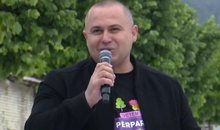

From Venezuela to practice prostitution in Vlora, 3 girls under investigation
2025-07-11 14:30:44
High-risk young man arrested in Fushë Kuqe (NAME)
2025-07-11 14:17:52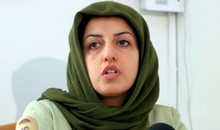
Iranian Nobel Peace Prize winner receives death threats from Tehran
2025-07-11 14:08:57
Seven victims buried on 30th anniversary of Srebrenica genocide
2025-07-11 13:58:04
Dinners after 8:00 PM harm the body and sleep, what the study shows
2025-07-11 13:56:27

The question is not "how many there are", but who are the "advisors"...?
2025-07-11 13:40:09

Gramsh/ Landslide, 58-year-old dies
2025-07-11 13:27:31
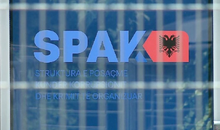
Anti-drug action in Shkodra, who is the former police officer wanted by SPAK
2025-07-11 13:11:40
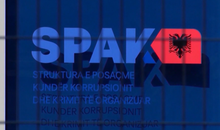
SPAK action in Shkodra, 13 arrest warrants issued, including police officers
2025-07-11 12:53:55
Requests freedom, date set for review of Meta's appeal
2025-07-11 12:42:40

Albania's anti-disinformation strategy could undermine free media
2025-07-11 12:26:14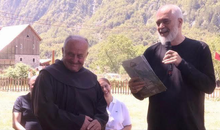

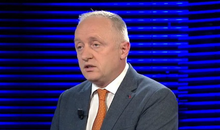
Dervish's Irony: Why are 30 advisors few for a water supply director?
2025-07-11 11:58:20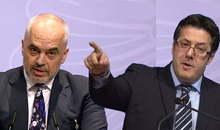


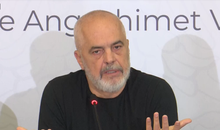
Rama's ultimatum: On Monday, all heads of administrative units must be dismissed
2025-07-11 11:05:59
Fires in the country, 4 fires still active, what is the situation?
2025-07-11 10:56:23
Government irony: Rama strips Dredha of power, then demands law and order
2025-07-11 10:49:10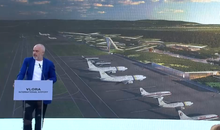
German media: Vlora Airport 'kills' one of Europe's largest wetlands!
2025-07-11 10:37:46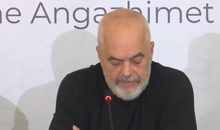
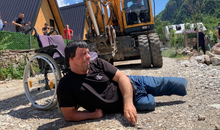
Amid the Alps in Theth, the law punishes even those who try to respect it
2025-07-11 10:14:16
Wanted for theft, 26-year-old arrested in Durrës
2025-07-11 10:03:29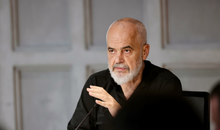
After the dismissals, Rama gathers the mayors in Durrës
2025-07-11 09:42:29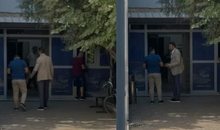
Released on bail, Salianji appears before the Probation Service
2025-07-11 09:34:28
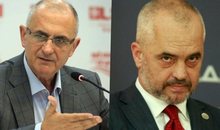
Haxhi Qamil Rama and the directors of the Municipalities!
2025-07-11 09:21:35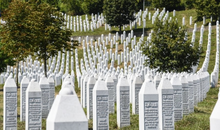
30 years since the Srebrenica massacre in Bosnia and Herzegovina
2025-07-11 09:10:52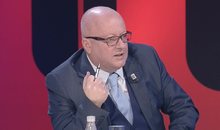
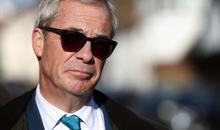
From rhetoric to brandy, POLITICO: 9 things Nigel Farage can do in Albania
2025-07-11 08:53:35
Trump announces 35% tariffs on Canadian goods
2025-07-11 08:39:29
Foreign exchange, how much foreign currencies are sold and bought today
2025-07-11 08:24:25

Horoscope, what do the stars have in store for you today?
2025-07-11 07:59:39
Sun and high temperatures, weather forecast
2025-07-11 07:41:09
Morning Post/ In 2 lines: What mattered yesterday in Albania
2025-07-11 07:20:14
Zhupa: In Theth, some Austrian strategic investors want the empty area
2025-07-10 22:57:08
Malltezi: SPAK admits, we are in a process that began with Balla's false report
2025-07-10 22:34:16

Si të çliroheni nga bllokimet emocionale me anë të ushtrimeve
2025-07-10 21:57:24

Lala: Veliaj wanted to return as mayor
2025-07-10 21:40:46

VIDEO/ Brawl in Bolivian parliament, deputies physically clash
2025-07-10 21:20:30


Albania experienced one of the longest heat waves of the last decade
2025-07-10 21:01:09

The Government approves new procedures for declaring residence in e-Albania
2025-07-10 20:39:32

Koka: Northerners will not forget Edi Rama's racist operation in Theth
2025-07-10 20:18:24
The 3 zodiac signs that will be most affected by the 'Full Moon' of July 10
2025-07-10 20:04:49
New director of the National Center of Cinematography appointed
2025-07-10 19:51:12
Korça/ 40-year-old man jumps from fifth floor balcony, in critical condition
2025-07-10 19:40:19
'Tired Woman'/ The Syndrome That Affects Thousands of Women Every Day
2025-07-10 19:34:02
Jane Birkin's original Hermès bag sells for $10 million
2025-07-10 19:26:22

Britain-Ukraine agreement signed for 5,000 Thales missiles
2025-07-10 19:00:25
Fire in Zvërnec, flames endanger two hotels
2025-07-10 18:57:19
Croatia restores compulsory military service
2025-07-10 18:39:01
Spahia: The great truth of the strong accusation of the residents of Theth
2025-07-10 18:35:07


The Supreme Court left him in prison, Meta addresses the 'Constitution'
2025-07-10 17:57:21
New punishment with 'new' regulations
2025-07-10 17:54:46
EU translator fired over fears for Zelenskyy's safety
2025-07-10 17:45:37
'You are a policeman, but not God, take my soul', protest for Agon Zejnullahu
2025-07-10 17:41:21


Video/ Rama repeats the scenario, kneels before Meloni again
2025-07-10 16:56:31
He set fire to a plot of olive trees, 50-year-old man arrested in Shijak
2025-07-10 16:46:19

Rubio: US and Russia have exchanged new ideas for Ukraine peace talks
2025-07-10 16:36:20
Death of 27-year-old, Lipjan Police Commander Resigns
2025-07-10 16:21:28
Video/ An apartment burns in Tirana near the New Bazaar
2025-07-10 16:09:36


Jensila lights up the internet with her birthday greetings to Ledri
2025-07-10 15:42:08
They're full of pesticides! List of 12 products we need to be careful of
2025-07-10 15:31:04

Worker falls from scaffolding in Shëngjin, urgently sent to Trauma
2025-07-10 15:11:03
Malltezi: Within one day they seized my accounts, properties and shares
2025-07-10 15:01:23
EU: Israel has agreed to more aid to Gaza
2025-07-10 14:55:19


Murder of Reni Dobra, 23-year-old's vehicle pulled from the water
2025-07-10 14:29:23
Trump's tariffs on Brazil raise coffee prices
2025-07-10 14:16:07
Ursula von der Leyen survives no-confidence vote
2025-07-10 14:04:27


Fire in Lezha, flames near electrical substation
2025-07-10 13:32:24